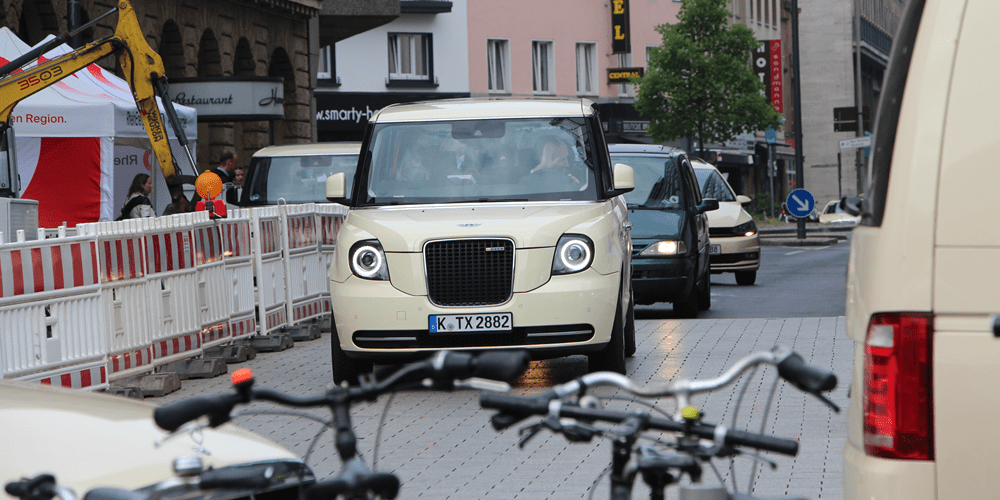Inductive taxi charging project completed in Cologne
In Cologne, the TALAKO research project for inductive charging of electrified taxis has now been successfully completed. The charging system at Cologne Central Station has been in operation since May 2022, has been tested and improved and is now running reliably.
At least that is the conclusion of the Bergische Universität Wuppertal, whose researchers collaborated on TALAKO. The six taxi vehicles converted for this system as part of the project have loaded around six hundred times since it went into operation in May 2022. The camera-based positioning system works “accurately and safety for humans and animals is guaranteed”. Further results are not mentioned in the short announcement.
At the conclusion of TALAKO, the participating project team first met at the charging station at Cologne Central Station. Afterwards, the project partners summarised the project results in the Future Lab of the City of Cologne. Only “through the close cooperation and pragmatic approach of all project partners” was the implementation of such a charging station possible, according to a statement from the university.
With the conclusion of the project, however, the charging station will not be dismantled: Back in May, it was said that the inductive charging stations set up on behalf of the project partner RheinEnergie would continue to be operated after the end of the project. Two partners of TaxiRuf Köln ordered five LEVC TXs as part of TALAKO and have been operating them ever since.
The aim of the project was to develop a solution to charge electric taxis contactlessly while they are waiting. If the taxis kept advancing in the taxi rank queue, wired charging would be impractical. In addition, a modular design based on the building block principle was aimed at in order to be able to flexibly dimension the charging stations depending on the location. Another important goal was to ensure electromagnetic compatibility. Here, it was observed whether relevant standards or laws (or their limit values) were complied with, so that the system did not pose any health hazards to humans or animals.
The project ‘Taxi charging concept for public spaces’ (TALAKO) started in October 2019 with a term of three years and a funding volume of two million euros. The project is being led by the University of Duisburg-Essen, specifically the Chair of ABWL & International Automotive Management. The other project partners are INTIS GmbH, RheinEnergie AG, the City of Cologne, LEVC Ltd and Taxiruf Köln.
uni-wuppertal.de (in German)




